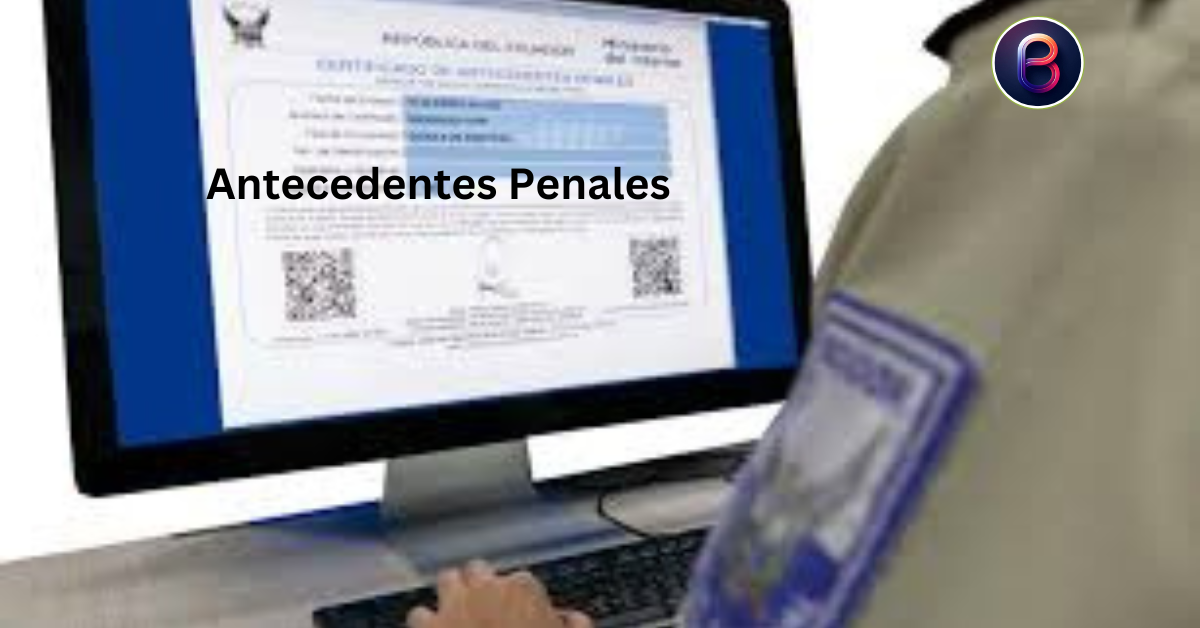Antecedentes penales are important documents that show if someone has a criminal record. Understanding these records is crucial for many reasons, like applying for a job or traveling. In this article, we will explain what antecedentes penales are, how to get them, and what they mean for your life. We’ll also answer common questions and share tips to help you understand this topic better. Whether you’re curious about your own records or someone else’s, this guide will make it easy to learn about antecedentes penales!
What are Antecedentes Penales?
Antecedentes penales are official records that show if a person has been arrested or convicted of a crime. They help employers, schools, and other organizations decide if someone is suitable for a job or activity. There are different types of antecedentes penales, including records of serious crimes and minor offenses. Understanding what these records contain is important for knowing your own background and future opportunities.
Types of Antecedentes Penales
There are several types of antecedentes penales:
- Police Records: These show any arrests, even if the person wasn’t convicted.
- Conviction Records: This type shows if someone was found guilty of a crime.
- Non-Conviction Records: These include cases that didn’t end in a conviction, like dropped charges.
Knowing these types helps you see what information may be available about you or others.
How to Obtain Antecedentes Penales
To get your antecedentes penales, follow these simple steps:
- Visit the Right Office: Go to your local police station or government office.
- Fill Out a Form: Complete an application form for your records.
- Provide Documents: Bring your identification, like a passport or ID card.
- Pay Any Fees: There may be a small fee for processing your request.
Sometimes, you can even request these records online, making it easier to get them quickly. Be sure to check the official website for specific procedures in your area.
Also, read more
Florida Department of Corrections: Role and Services in 2024
Where to Request Antecedentes Penales
You can request your antecedentes penales in several places:
- Government Offices: Check local police stations or justice departments. Make sure to ask about their hours and what documents you need.
- Online Services: Some regions offer websites where you can apply easily. This can save time and effort.
- Regional Differences: Remember, rules can change depending on where you live. Always check your local laws for specific details.
If you’re unsure, asking someone at a government office can help guide you.
Legal Implications of Having Antecedentes Penales
Having antecedentes penales can affect your life in many ways:
- Employment Impact: Many employers check criminal records before hiring. Having a record can make it harder to get a job.
- Travel Restrictions: Some countries may not allow entry if you have serious criminal records.
- Civil Rights: A record can affect your rights, such as voting or owning a gun.
- Insurance Implications: Some insurance companies may consider your criminal record when determining your premiums.
Understanding these impacts is essential for planning your future.
Correcting or Expunging Antecedentes Penales
If you find an error in your antecedentes penales, don’t worry! Here’s what to do:
- Contact the Office: Reach out to the agency that issued your records.
- Provide Proof: Show any documents that support your claim of an error.
- Expungement Process: If you want to clear your record, you may need to file a request. This often requires legal assistance.
Clearing your record can help improve your chances for jobs and other opportunities.
FAQs
How long do antecedentes penales last?
They usually stay on record for a certain number of years, depending on the crime and local laws.
Can I check someone else’s antecedentes penales?
In some cases, yes, but you typically need their permission.
What should I do if my application is denied?
Find out why it was denied and follow the instructions to appeal or correct the issue.
Are there different rules for different types of crimes?
Yes, serious crimes may have different implications than minor offenses.
Case Studies or Real-Life Examples
Imagine a young man named Carlos. He had a minor offense in his teens. When he applied for a job, his antecedentes penales showed this record. He explained his past and showed how he has changed. The employer appreciated his honesty and hired him! This story shows how understanding and addressing antecedentes penales can positively impact your life.
Conclusion
Understanding antecedentes penales is important for everyone. These records can affect jobs, travel, and your rights. If you have a record, knowing how to correct it or clear it can open new doors. Stay informed, and don’t hesitate to seek help if you need it. Remember, knowledge is power!
Additional Resources
For more information on antecedentes penales, check these resources:
- Official Government Websites
- Legal Aid Organizations
- Guides on Criminal Law





